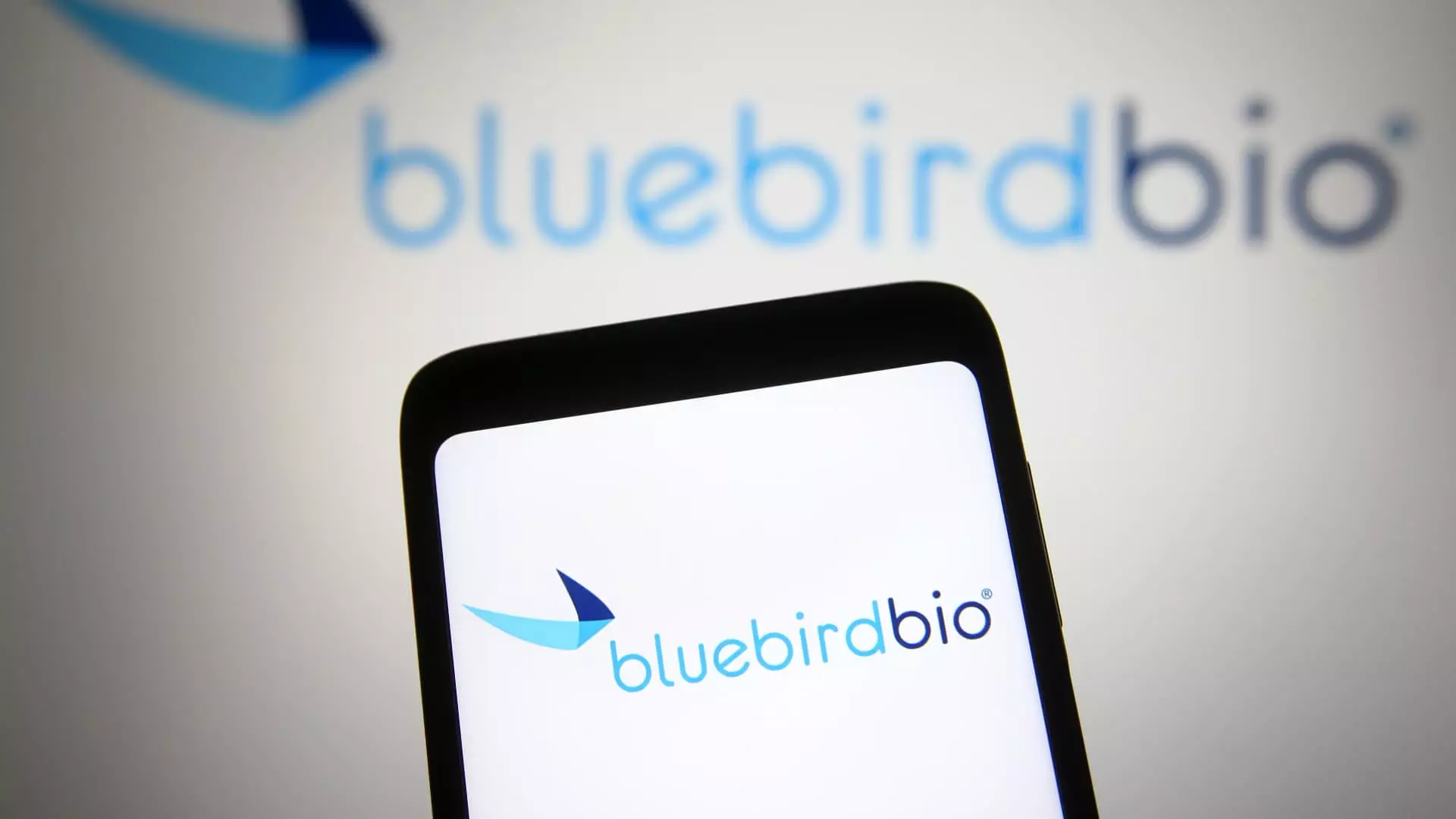Bluebird Bio, once heralded as a pioneer in the biotech industry, has announced its acquisition by private equity firms Carlyle and SK Capital for approximately $30 million. This development signals a dramatic decline for a company that once boasted a market capitalization reaching nearly $9 billion. The fall from grace represents not just a corporate failure but highlights critical issues within the rapidly evolving biotechnology sector. The deal underscores the robust volatility and inherent risks associated with investments in companies promising revolutionary gene therapies—a reality that should serve as an important lesson for both investors and the industry.
As shareholders of Bluebird Bio brace for the financial impact of the sale, they will initially receive $3 per share, with conditional bonuses that could reach $6.84 per share depending on the performance of Bluebird’s gene therapies. However, this is a stark contrast to the closing share price of $7.04 prior to the announcement, after which the stock plummeted by 40%. Such drastic fluctuations in stock value evoke questions about the stability and reliability of biotech investments. Investors’ disappointment is palpable, transitioning from the excitement of potentially groundbreaking treatments to the disheartening reality of financial collapse.
From Hope to Hardship: The Gene Therapy Dilemma
For over three decades, Bluebird Bio invested its efforts in creating gene therapies aimed at curing genetic diseases, initially igniting hope among patients and investors alike. However, the turning point came in 2018 when complications arose from treatments. A patient treated for sickle-cell disease developed cancer, leading to a management crisis that cast doubt on the safety of the therapies. Notably, Bluebird’s initial assertion that their treatment was not directly responsible only intensified scrutiny and led to broader concerns regarding the risk versus reward dynamics of gene therapies.
Additionally, Bluebird faced challenges with pricing its therapies, notably the $1.8 million cost for Zynteglo—a therapy for beta thalassemia—in Europe. Following backlash from European payers, the company took the controversial step of withdrawing Zynteglo from the market just two years post-approval, shifting its focus to garnering results in the U.S. This pivot, however, has not yielded the anticipated financial relief, as multiple approved therapies, including Zynteglo and Lyfgenia, have failed to stabilize the company’s finances.
The Financial Suffocation of Innovation
Bluebird’s internal struggles have been further exacerbated by financial mismanagement. Operating costs skyrocketed into the hundreds of millions, creating a fiscal environment that became increasingly untenable. By offloading its cancer treatments to 2Seventy Bio, Bluebird stripped itself of a vital revenue source, exacerbating an already grim financial landscape. Recent updates indicated that the company’s cash reserves would only sustain operations through the first quarter of 2023, compelling management to pursue this sale—a heart-wrenching decision reflecting the broader malaise affecting numerous biotech firms.
The Question of Viability in Gene Therapies
The current landscape is littered with doubts regarding the ability of biotech firms to translate innovation into sustainable business practices. Other prominent companies have also faced similar woes. Vertex’s gene therapy for sickle cell disease had a sluggish launch, while Pfizer recently ceased sales of a hemophilia gene therapy approved a mere year ago due to lackluster demand. These incidents serve as a cautionary note: the promise of transformative medical breakthroughs does not necessarily equate to immediate commercial success.
Despite Bluebird Bio’s struggles, it is essential to recognize the substantial impact its therapies have had on many patients. There are countless families who have benefitted from its innovations. However, as the company transitions into a new chapter under private equity, it leaves behind a mixed legacy filled with lessons regarding the fragility of biotech enterprises. The future for gene therapies remains uncertain; it begs the salient question of how a sector, imbued with incredible promise, can balance lofty ambitions with practical, sustainable business strategies. The fate of Bluebird Bio serves as a poignant reminder that the path to medical innovation is fraught with pitfalls, a reality that the biotech industry must address head-on.


Leave a Reply